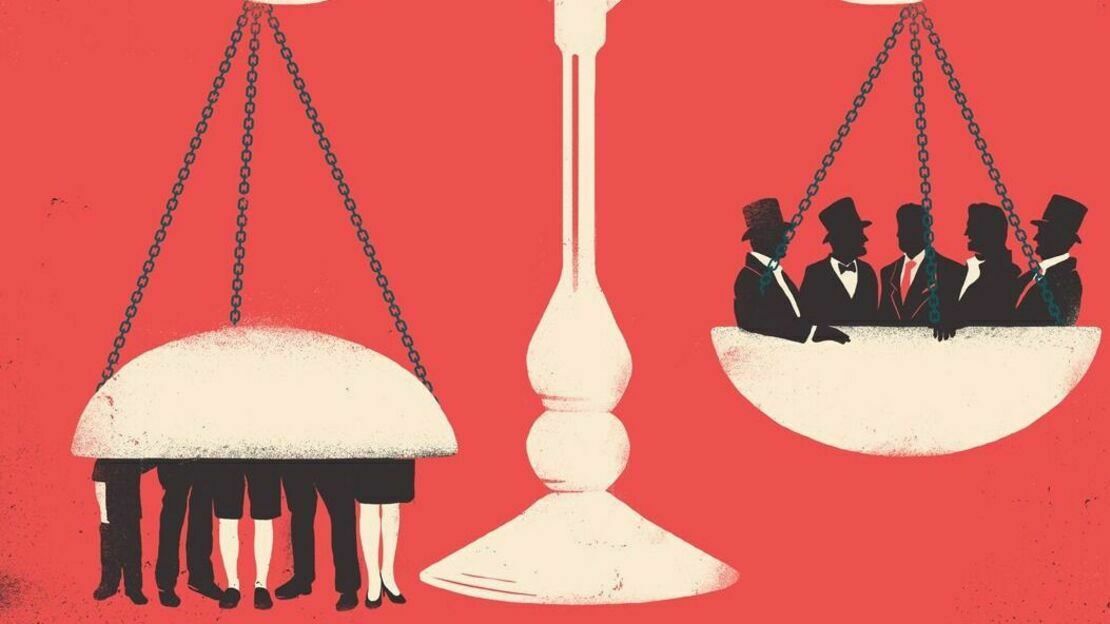Posted 7 марта 2023, 08:16
Published 7 марта 2023, 08:16
Modified 7 марта 2023, 09:24
Updated 7 марта 2023, 09:24

Question of the day: should Russians hope for the triumph of social justice?
Dmitry Mikhailichenko, Analyst, Doctor of Philosophy
Russian society before the Special military operation started perceived the social reality surrounding it as unfair.
Given the enormous level of economic inequality and the concentration of super-riches, the resentment of the masses about this is easily explained. Global Wealth Report 2022 shows that 1% of Russians own 58.6%: this is the highest figure in the world. At the same time, the SMO records a number of significant, and possibly structural shifts in this issue. I will designate only the most convex of them.
- "Restoration of historical justice". The beginning of its propaganda presented as a way to restore historical justice. This rhetoric has laid the groundwork for the imperial ambitions of a significant part of society: it sincerely believes that it is necessary to endure hardships for the sake of historical justice.
- Correction of the oligarchic anomaly. The era of SMO has led to significant fluctuations in the oligarchic corps, to which Russian society is extremely negative. The oligarchs who left or the ones who stayed are not the point: everyone is perceived negatively. Society is in the inertia of increasing statism, which assumes that there should be no private oligarchs, all wealth should belong to the state, and not to Deripaska and, especially, to Abramovich. And it's not worth talking about the Avens and others: their trajectory has only strengthened public opinion that the oligarchs are an anomaly. The emerging deoligarchization, even if it is facade (change of signage and decorations), also gives society a sense of justice.
- The neglected regional periphery. The regional periphery has long felt violated and deprived of the attention of the authorities, even the governors from the capital are not too willing to go there. However, since the beginning of their own and, especially, the partial mobilization, these residents have felt their importance, a necessity for the state (although, of course, in an extreme version). As a result, the money that the mobilized receive has also come to the regional hinterland: on the scale of these locations, there is a lot of money.
- The narrowing of the middle class, able to lead a life at the level of Western standards. Such a stratum in megacities was about 8-15%, in the capitals - significantly more, but now its widespread reduction is taking place. For the rest of Russians deprived of such opportunities, the current trend is also, to some extent, the restoration of social justice, expressed in the radical formulation "never lived well – there is nothing to start." Russian society is far from meritocratic standards.
- Elimination of the flashy luxury of officials. It was precisely because of the decrease in the acuteness of the perception of economic inequality that officials and their families were ordered not to show the attributes of luxury and foreign holidays. At the same time, the officials themselves as subjects of mobilization began to be perceived as real patriots.
- Increased censorship and minimization of protest. And before that, the level of control of the mass media was high, and military actions justify censorship and self-censorship in the eyes of a significant part of society: "Let the dissatisfied leave, and protest is practically impossible in general. This is not the time to protest: the enemies are encroaching on Russia".
These and many other factors work to partially rehabilitate social justice, but their impact should not be overestimated. Society may be encouraged by the fact that reality is becoming fairer, but the ruling class will retain its dominance, which means that the feeling of injustice and the production of resentment will continue. The era of SMO will involve increased attention and even political representation of those who fought, and the ruling bureaucracy is not ready for this. There are other challenges that work to increase the sense of injustice, but for now, rather, they are in sleep mode. The rhythms of managing society and its ideas remain in the hands of the ruling class, and this is the most key factor.
Especially for the "Kremlin Madman".